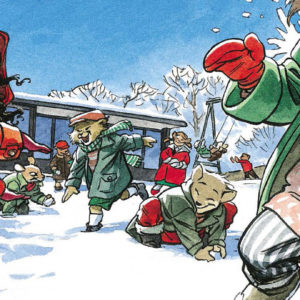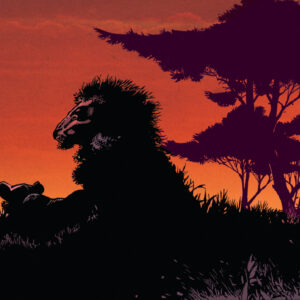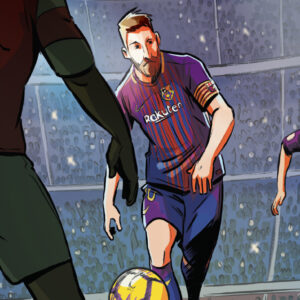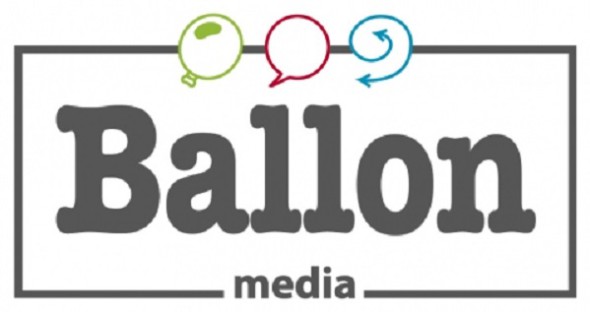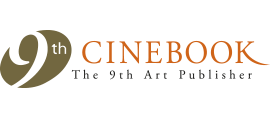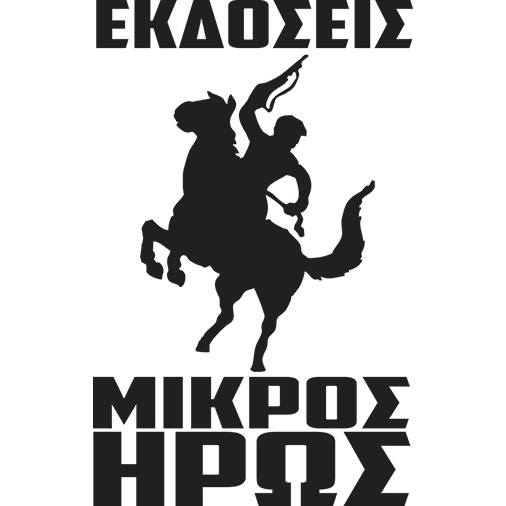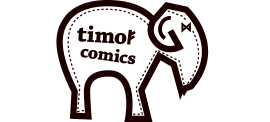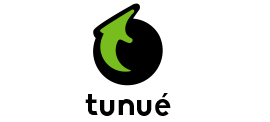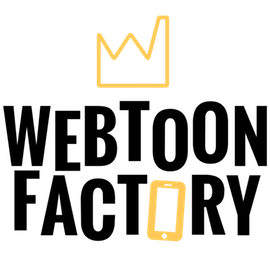 Marie Curie – The Radium Fairy
Marie Curie – The Radium Fairy
Marie Curie is the only woman ever to have received two Nobel prizes: the Nobel Prize for Physics in 1903, shared with her husband, Pierre Curie, and the Nobel Prize for Chemistry for her work with polonium and radium in 1911. She was also the first woman ever to teach at the Sorbonne. This inspired comic is set at the time she received her second Nobel Prize, when a vicious press campaign was launched against her, denouncing her affair with the physician Paul Langevin. Through her flash-backs, we’re invited to witness the key moments of this exceptional woman’s life and work.
Planet of Science – The Universal Encyclopedia of Scientists

Explore the greatest scientific breakthroughs of all time through the fascinating lives of the people who made them. Some are well known, such as Darwin, Einstein, and Da Vinci… Others are more obscure, like Van Leeuwenhoek, the draper who discovered microorganisms, and Alfred Wegener, the meteorologist who revealed continental drift. Combining incredible discoveries and amusing life stories, these 37 portraits of exceptional scientists will amaze you. Science is both a human and social adventure, and these geniuses from the days of antiquity to the present, whether behind the scenes or on the world stage, are the living proof.
France—the early 21st century. A young student must complete a corporate job shadowing internship. Thanks to a cousin on his father’s side, also of Greek descent, he gets a foot in the door at a famous consulting firm. He will soon discover the true face of office life. The intern’s name: Kevin Plato. From Nietzsche the director of human resources, to Foucault the video-surveillance monitor, to Teresa of Ávila the executive secretary, and many, many more, Plato dives headfirst into the world of work… philosopher style.
What was the Roswell incident? Why did people in the Stone Age paint pictures on cave walls? What is the Larsen effect? What was the “Wow!” signal? How do carnivorous plants catch their prey? What is absolute zero? Author Fabcaro, smitten by science, tackles countless scientific subjects alongside artist Julien/CDM in this illustrated “encyclopedia.” Through humor and irony, they manage to make even the trickiest topics accessible to all—in just one page!
 On the History Trail With Ariane and Nino – 1. Albert Einstein – Genius Physicist
On the History Trail With Ariane and Nino – 1. Albert Einstein – Genius Physicist
Nino would rather be outside playing than stuck inside doing homework—especially science homework. Then he discovers that one of the greatest scientists ever started out feeling the same way: Albert Einstein—the guy who invented that famous formula: E=mc2. And, as Ariane explains, there was a lot more to Einstein than just formulas. Thanks to him, we have GPS devices and electric gates, nuclear energy and … well, yes, also nuclear bombs. Einstein did everything he could to make the world a better place—but after all, he was only human!
The Adventures of Chick The 1st

He’s a chick unlike any other! Right from day one, Chick the 1st is beleaguered by the doubts and questions that come with the capacity to reason. When the farmyard dog asks him “What are you?”, little does he suspect the turmoil of endless enigmas he provokes in our little chick’s mind. While seeking answers to his endless questions, Chick the 1st shakes up all the social conventions of the chicken coop, causing scandal left, right and center. With the help of his Aunt Gallina and the mouse that devours books, Chick the 1st grapples with reality, both in the abstract and literal sense!
Header image: Planet of Science © Antonio Fischetti, Guillaume Bouzard / Dargaud


